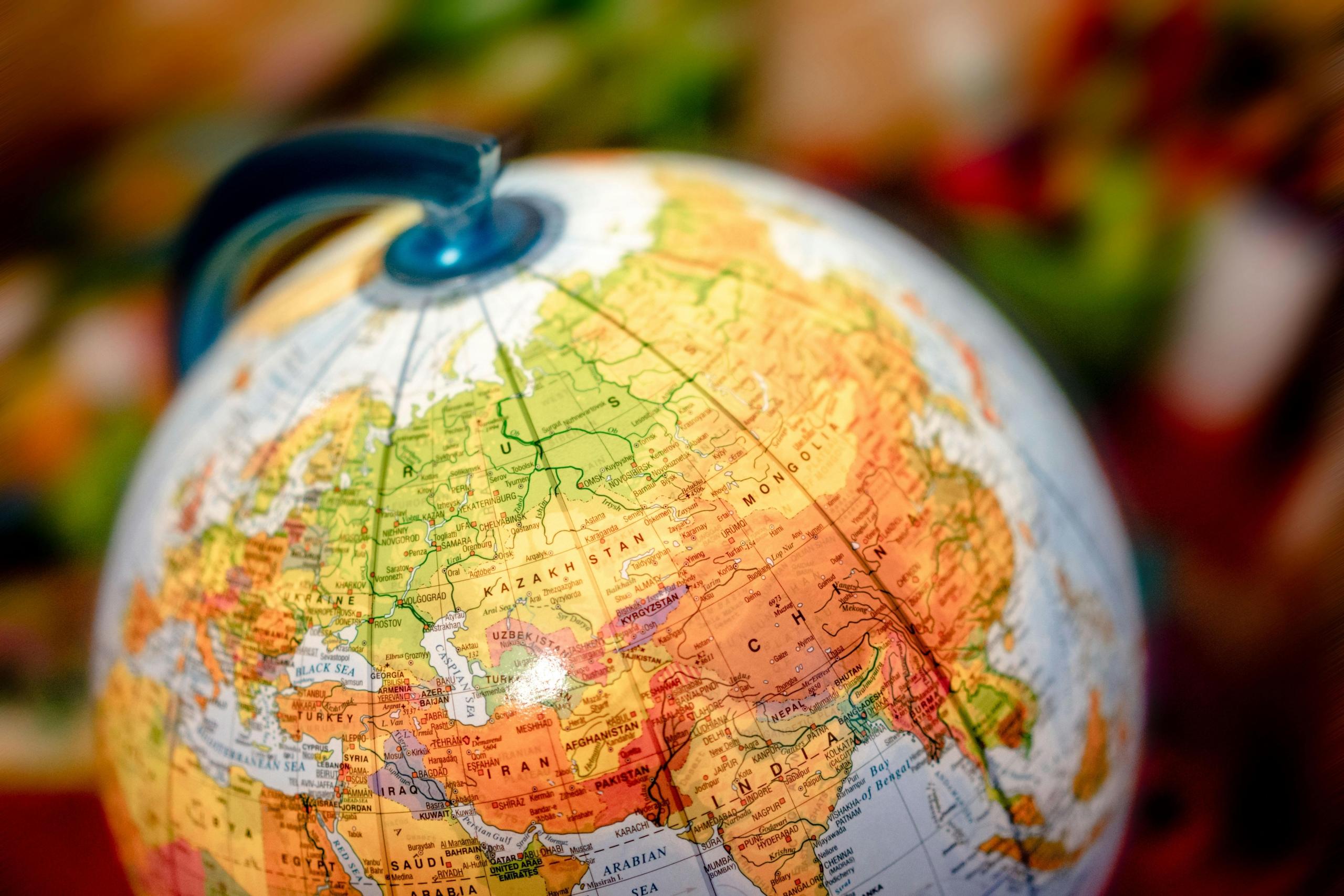If you've always been fascinated by the dynamics of international alliances and their impact on the world stage. One such alliance that has been gaining increasing prominence is BRICS, which stands for Brazil, Russia, India, China, and South Africa. These countries, each with a unique history, culture, and economic standing, have come together to form a formidable coalition that has the potential to reshape the global order.
In this article, we will delve deep into the formation, significance, challenges, and future prospects of BRICS, shedding light on the implications of this alliance for global trade and geopolitics.

History and Formation of BRICS
The roots of BRICS can be traced back to the early 2000s, a time when the world was witnessing a tectonic shift in economic and geopolitical power. In 2001, Jim O’Neill, an economist at Goldman Sachs, coined the acronym "BRIC" to refer to the emerging economies of Brazil, Russia, India, and China, which he believed would play a pivotal role in shaping the global economy in the 21st century. It wasn't long before South Africa, with its rapidly growing economy and strategic significance in the African continent, was invited to join the group, transforming BRIC into BRICS.
The formal establishment of BRICS took place in 2006, with the inaugural summit held in Yekaterinburg, Russia, in 2009. Since then, the alliance has evolved into a platform for dialogue and cooperation among its member countries, encompassing a wide range of economic, political, and security issues.
The formation of BRICS was driven by a shared vision of promoting inclusive and sustainable development, enhancing cooperation in key areas such as trade, investment, and technology, and advocating for a more equitable and representative global governance system. By joining forces, these homeland territories sought to amplify their voices on the international stage and carve out a space for themselves in the decision-making processes of global institutions such as the United Nations, World Bank and International Monetary Fund. The alliance also served as a counterbalance to the dominance of Western powers in shaping the rules of the global economy, offering an alternative vision for a more multipolar world order.
Overview of Each BRICS Country
Brazil

Nestled in South America, Brazil is a country of immense natural beauty, cultural diversity, and economic potential. With its rich biodiversity, vibrant cities, and a burgeoning middle class, Brazil has emerged as a major player in the global economy.
The country's economy is driven by a diverse range of industries, including agriculture, mining, manufacturing, and services. Brazil is also known for its leadership in environmental conservation and sustainable development, as evidenced by its active participation in international climate change negotiations and the preservation of the Amazon rainforest, often referred to as the "lungs of the planet."
Russia
Spanning two continents and boasting a rich history and a wealth of natural resources, Russia occupies a unique place in the geopolitical landscape. As one of the world's largest energy producers, Russia wields significant influence in global energy markets and geopolitical affairs.
The country's vast territory, strategic location, and military capabilities have positioned it as a key player in international security and diplomacy. Despite facing economic challenges and geopolitical tensions with the West, Russia remains a pivotal member of BRICS, contributing its expertise in areas such as energy, technology, and strategic partnerships.
India
India, with its ancient civilisation, diverse culture, and rapidly growing economy, has captured the world's attention as a rising global power. The country's vibrant democracy, thriving technology sector, and entrepreneurial spirit have propelled it onto the world stage as a hub of innovation and economic dynamism. India's demographic dividend, with a young and aspiring population, presents both opportunities and challenges as the country seeks to harness its human capital for sustainable development and inclusive growth.
As a member of BRICS, India brings to the table its experience in information technology, pharmaceuticals, and renewable energy, contributing to the alliance's vision of fostering innovation and collaboration.
China
With a civilisation that spans millennia, China has re-emerged as a global powerhouse, shaping the contours of the 21st-century world order. The country's rapid economic transformation, technological prowess, and ambitious infrastructure projects have propelled it to the forefront of global trade and investment.
China's Belt and Road Initiative, aimed at enhancing connectivity and economic cooperation across continents, exemplifies its vision of building a community of shared future for mankind. As a leading exporter of goods and services, China's role within BRICS is pivotal, as it seeks to champion multilateralism, global governance reform, and sustainable development.
South Africa
Situated at the southern tip of the African continent, our home is a land of diversity, resilience, and historical significance.
South Africa's transition from apartheid to democracy has been hailed as a triumph of human spirit and reconciliation, inspiring people around the world.
Our economy, with its rich reserves of minerals, agricultural potential, and a growing services sector, holds promise for sustainable development and inclusive growth. As the only African member of BRICS, South Africa brings a unique perspective to the alliance, advocating for greater representation of the continent in global decision-making processes and fostering partnerships for development in Africa.

Economic Significance of BRICS
The collective economic weight of BRICS countries is substantial, accounting for a significant share of global GDP, trade, and foreign direct investment. With the growing consumer markets, expanding middle class, and diverse industrial bases, these countries have become engines of global economic growth and drivers of international trade and investment. The diversity of their economies, ranging from resource-rich nations to technology-driven powerhouses, offers a complementary set of strengths that can be leveraged for mutual benefit and shared prosperity.
The combined GDP of BRICS countries has been steadily increasing, reflecting their resilience and potential to weather global economic challenges. In recent years, these countries have intensified their efforts to deepen economic cooperation through initiatives such as the New Development Bank, the Contingent Reserve Arrangement, and the BRICS Business Council, which aim to facilitate infrastructure financing, enhance financial stability, and promote trade and investment among member countries.
The establishment of these institutions underscores the commitment of BRICS nations to foster a more equitable and inclusive global economic architecture, one that reflects the realities of the 21st century and addresses the developmental aspirations of emerging economies.
Political Influence and Global Impact
The geopolitical significance of BRICS lies not only in its economic clout but also in its potential to shape the contours of global politics and security. As major players in their respective regions and beyond, BRICS countries have been increasingly asserting their influence in international affairs, advocating for a multipolar world order, and seeking to address global challenges through dialogue, cooperation, and diplomacy. Their collective weight in international forums such as the G20, United Nations, and the World Trade Organization has amplified their impact on global governance and decision-making.
The alliance has also been instrumental in fostering political dialogue and strategic partnerships among its member countries, enhancing mutual understanding, trust, and cooperation in areas such as security, counterterrorism, and conflict resolution. By aligning their positions on key geopolitical issues and supporting each other's legitimate interests, BRICS nations have sought to promote peace, stability, and development in their respective regions and beyond, contributing to the maintenance of global peace and security.
Challenges and Opportunities For BRICS Nations

While the BRICS alliance presents a compelling vision of cooperation and mutual benefit, its member countries also face a set of shared challenges and opportunities that shape the trajectory of their engagement with each other and the world at large.
One of the primary challenges facing BRICS nations is the need to address the development divide within and among member countries, ensuring that the benefits of economic growth and technological advancement are equitably distributed and inclusive.
Geopolitically, BRICS countries must navigate complex regional and global dynamics, managing their relationships with major powers, addressing security threats, and promoting peace and stability in their respective neighbourhoods.
Amidst these challenges, BRICS nations are presented with a myriad of opportunities to harness their collective strengths and chart a course for sustainable development, innovation, and global leadership. The alliance serves as a platform for pooling resources, sharing best practices, and fostering innovation in critical areas such as renewable energy, digital economy, and sustainable infrastructure, offering a pathway for inclusive and sustainable growth.
Looking ahead, the future prospects of BRICS are shaped by a dynamic interplay of internal and external factors, as the alliance seeks to adapt to a rapidly changing global landscape and assert its relevance in addressing emerging challenges and opportunities. The member countries have articulated a vision for deepening cooperation in key priority areas, cultivating greater integration and synergy among their economies, and enhancing their collective voice and influence in worldwide affairs.















